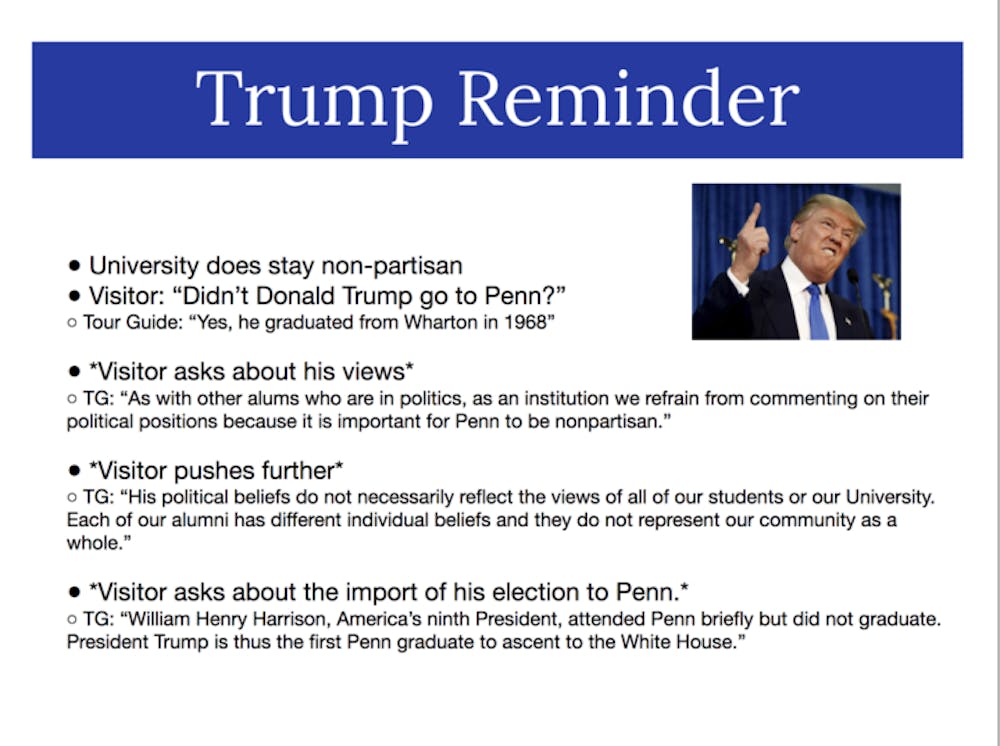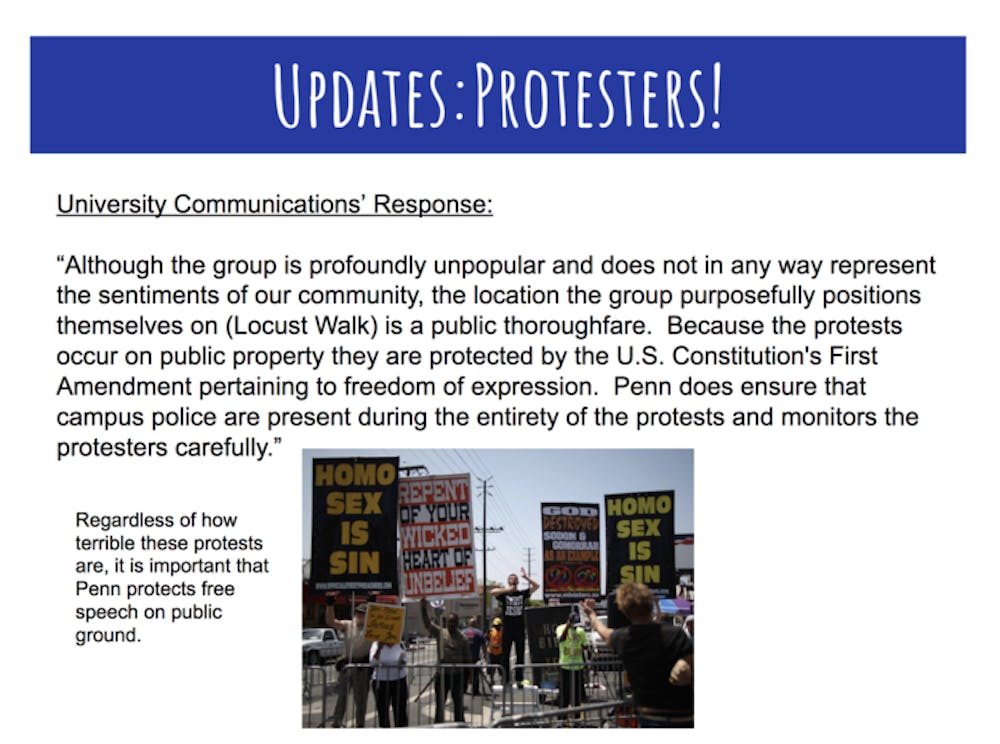
File Photo
Every year, the student tour guides of the Kite and Key Society at Penn are tasked with selling Penn to the tens of thousands who visit its campus. Everything from academics to Greek life falls within the realm of topics that prospective students and their families might want to discuss. And while there are clear guidelines concerning how these student guides should respond to difficult questions, sometimes sensitive topics arise that warrant more complex answers.
Kite and Key, which was founded in 1924, includes more than 200 students who volunteer for various initiatives. While the guided campus tours are the most visible aspect of Kite and Key, the organization is involved with high school outreach, planning for Quaker Days, and other programs as well.
During guided tours, trained students escort groups across campus and inform them about Penn student life and traditions. Sometimes they have to address more difficult topics such as mental health.
“We try to be very up front about these things,” said College and Wharton junior Ryan Leone, the president of Kite and Key. “Before we get even asked a question on tours, we outwardly mention mental health resources that are available on campus.”

Board members said that while there is no formal procedure for tour guides in discussing mental health, they are required to mention Penn's mental health resources. They also are encouraged to share their own experiences dealing with their own mental health struggles or successes, if they feel comfortable doing so. Guides do not directly mention the 14 Penn students who have died by suicide since February 2013.
“From any standpoint, that is just scary information to just drop on someone,” said College junior Arica Shepherd, Kite and Key's equity and access coordinator. “[With] the approach that we are taking, it is important to talk about what the University is doing to better the situation.”
But some guides have expressed concern over the way they portray mental health on campus.
Carmen, a past member of Kite and Key and a 2017 Wharton graduate who only wished to be referred to by her first name, recalled that three students died by suicide during her senior year and one of them was a close friend of hers.
“We sort of had to make everything seem good or better than it actually was,” she said. “But I didn’t want to give people the idea that Penn is such a happy place and everyone is going to thrive.”
College senior Nicholas Moya, who died by suicide earlier this semester, was a member of Kite and Key.
Another theme that sometimes comes up is the history of President Donald Trump at Penn.
In November 2016, 1968 Wharton graduate Donald Trump was elected president. Throughout his campaign, Trump frequently referred to his undergraduate degree to defend his intellectual capabilities.
Penn President Amy Gutmann has criticized Trump's executive order on immigration and his administration's repeal of the Deferred Action for Childhood Arrivals program, which protects nearly 790,000 undocumented young people in the United States. DACA has also been a large point of controversy on Penn's campus and has the potential to affect many of Penn's students.
Although board members said student guides are advised to not bring up Trump and politics during tours, the board still crafted a template for guides to use when members of tours do ask.

Shepherd and Wharton junior Sabrina Sidhu, Kite and Key's vice president of communication, both said that they each have only ever had to discuss Trump once during a tour.
Occasionally, guides are confronted with issues more tangible than those of mental health and politics: protestors and demonstrations on College Green.
Over the past several months, the public space has accommodated controversial Christian preachers, Fossil-Free Penn rallies, and an anti-abortion demonstration with visceral signs depicting aborted fetuses.
In these cases, Kite and Key guides are instructed to ignore their personal feelings and to focus on the First Amendment and the University's policies concerning freedom of expression.
“Regardless of what protestors are saying, we have to say that Penn is public grounds and these people are entitled to be here,” Sidhu said. “We emphasize that their views do not reflect those of the University.”

Kathryn Bezella, the vice dean and director of marketing and communications for Penn Admissions, wrote in an email that when guides feel uncomfortable answering sensitive questions, they are encouraged to direct visitors to on-duty admissions officers for more information.
“Mental health has definitely been up for more discussion since 2014. I think it was when I was a senior that Madison Hollaran died," said 2014 College graduate Shannon Macika, a former member of Kite and Key and 2014 College graduate. "Till then, I think the most common sensitive topic that we talked about back then was crime."
The Daily Pennsylvanian is an independent, student-run newspaper. Please consider making a donation to support the coverage that shapes the University. Your generosity ensures a future of strong journalism at Penn.
Donate




